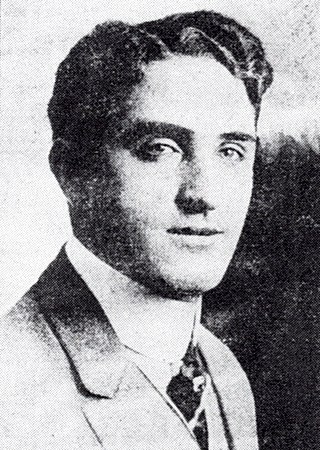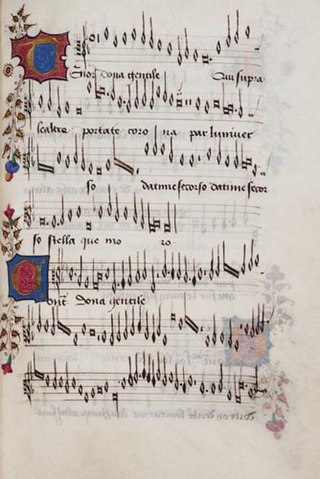Related Research Articles

James Hubert "Eubie" Blake was an American pianist and composer of ragtime, jazz, and popular music. In 1921, he and his long-time collaborator Noble Sissle wrote Shuffle Along, one of the first Broadway musicals written and directed by African Americans. Blake's compositions included such hits as "Bandana Days", "Charleston Rag", "Love Will Find a Way", "Memories of You" and "I'm Just Wild About Harry". The 1978 Broadway musical Eubie! showcased his works, and in 1981, President Ronald Reagan awarded Blake the Presidential Medal of Freedom.

Sidney Clopton Lanier was an American musician, poet and author. He served in the Confederate States Army as a private, worked on a blockade-running ship for which he was imprisoned, taught, worked at a hotel where he gave musical performances, was a church organist, and worked as a lawyer. As a poet he sometimes used dialects. Many of his poems are written in heightened, but often archaic, American English. He became a flautist and sold poems to publications. He eventually became a professor of literature at Johns Hopkins University in Baltimore, and is known for his adaptation of musical meter to poetry. Many schools, other structures and two lakes are named for him, and he became hailed in the South as the "poet of the Confederacy". A 1972 US postage stamp honored him as an "American poet".
Ottaviano Petrucci was an Italian printer. His Harmonice Musices Odhecaton, a collection of chansons printed in 1501, is commonly misidentified as the first book of sheet music printed from movable type. Actually that distinction belongs to the Roman printer Ulrich Han's Missale Romanum of 1476. Nevertheless, Petrucci's later work was extraordinary for the complexity of his white mensural notation and the smallness of his font, and he did in fact print the first book of polyphony using movable type. He also published numerous works by the most highly regarded composers of the Renaissance, including Josquin des Prez and Antoine Brumel.

Louis Wolfe Gilbert was a Russian-born American songwriter of Tin Pan Alley. He is best remembered as the lyricist for "Ramona" (1928), the first movie theme song ever written.

The Peabody Institute of the Johns Hopkins University is a private music and dance conservatory and preparatory school in Baltimore, Maryland. Founded in 1857 and affiliated with Johns Hopkins in 1977, Peabody is the oldest conservatory in the United States and one of the world's most highly-regarded performing arts schools.
The music of Baltimore, the largest city in Maryland, can be documented as far back as 1784, and the city has become a regional center for Western classical music and jazz. Early Baltimore was home to popular opera and musical theatre, and an important part of the music of Maryland, while the city also hosted several major music publishing firms until well into the 19th century, when Baltimore also saw the rise of native musical instrument manufacturing, specifically pianos and woodwind instruments. African American music existed in Baltimore during the colonial era, and the city was home to vibrant black musical life by the 1860s. Baltimore's African American heritage to the start of the 20th century included ragtime and gospel music. By the end of that century, Baltimore jazz had become a well-recognized scene among jazz fans, and produced a number of local performers to gain national reputations. The city was a major stop on the African American East Coast touring circuit, and it remains a popular regional draw for live performances. Baltimore has produced a wide range of modern rock, punk and metal bands and several indie labels catering to a variety of audiences.
F. D. Benteen was an American sheet music publisher and composer during the 19th century, based out of Baltimore, Maryland. His compositions include the Civil War song "Joys That We've Tasted." As a publisher, he is perhaps best known for publishing many of the works of Stephen Foster. William Miller, later of Miller & Beacham, bought F.D. Benteen's publishing company in 1838. From about 1845 to 1861 he had music stores in Baltimore, where pianos were sold.

John Hill Hewitt was an American composer, playwright, and poet. He is best known for his songs about the American South, including "A Minstrel's Return from the War", "The Soldier's Farewell", "The Stonewall Quickstep", and "Somebody's Darling". His output during the American Civil War earned him the epithets "Bard of the Stars and Bars" and "Bard of the Confederacy".

Music publishing is the business of creating, producing and distributing printed musical scores, parts, and books in various types of music notation, while ensuring that the composer, songwriter and other creators receive credit and royalties or other payment. This article outlines the early history of the industry.

"Stonewall Jackson's Way" is a poem penned during the American Civil War that later became a well-known patriotic song of the Confederate States and the Southern United States. It became very popular, but its authorship was unknown until almost 25 years later.
The first decade of the 16th century marked the creation of some significant compositions. These were to become some of the most famous compositions of the century.

Abel Wolman was an American engineer, educator and pioneer of modern sanitary engineering. His professional career left impacts in academia, sanitary engineering research, environmental and public health services, engineering professional societies, and journal publications. Wolman is best known for his research with Linn Enslow in the chlorination of Baltimore's municipal water supply, which has contributed to the distribution of safe municipal water supplies globally.
Edward Allde was an English printer in London during the Elizabethan and Jacobean eras. He was responsible for a number of significant texts in English Renaissance drama, including some of the early editions of plays by William Shakespeare.
Ishmael (Ishmail) Spicer (1760–1832) was a publisher in Baltimore, a teacher, and one of the first American composers.
This timeline of music in the United States covers the period from 1850 to 1879. It encompasses the California Gold Rush, the Civil War and Reconstruction, and touches on topics related to the intersections of music and law, commerce and industry, religion, race, ethnicity, politics, gender, education, historiography and academics. Subjects include folk, popular, theatrical and classical music, as well as Anglo-American, African American, Native American, Irish American, Arab American, Catholic, Swedish American, Shaker and Chinese American music.
The music publishing firm of Miller & Beacham was formed by William Miller and Joseph R. Beacham in 1853 in Baltimore, Maryland. In 1862, they purchased the Baltimore firm of John Cole. Miller had previously purchased the firm of F. D. Benteen in 1838. Miller & Beacham was one of the most popular publishers during the American Civil War, and their catalogue included "Maryland! My Maryland!".

William Barley (1565?–1614) was an English bookseller and publisher. He completed an apprenticeship as a draper in 1587, but was soon working in the London book trade. As a freeman of the Drapers' Company, he was embroiled in a dispute between it and the Stationers' Company over the rights of drapers to function as publishers and booksellers. He found himself in legal tangles throughout his life.

John Windet was an English printer, notable for his music publications. He was a close business associate of fellow printer John Wolfe. After 1591, Wolfe ceased printing the lucrative metrical psalter of Thomas Sternhold and John Hopkins, and Windet succeeded him in becoming the sole printer of the work for patent-holder Richard Day. At some point, Windet succeeded Wolfe as London's City Printer. Wolfe passed on some of his printing ornaments to Windet after he decided to stop printing and focus solely on publishing in 1594. On Wolfe's death in 1601, Windet was appointed administrator of his estate.

Nathan "Ned" Miller was a British-born American songwriter, composer, music publisher, and actor who wrote the hit songs, "Why Should I Cry Over You", in 1922, "Sunday" in 1926, and "Little Joe" in 1931. His music has been recorded by Frank Sinatra, Nat King Cole, Louis Armstrong, Al Jolson, Carmen McRae, Stan Getz, Peggy Lee, the Ink Spots, Johnny Mercer, Benny Goodman, Andy Williams, and many others. His music has also been featured in weekly TV programs and films. In 1982, Ned Miller was inducted into the American Society of Composers, Authors and Publishers (ASCAP) Golden Circle after having been a member for fifty years.

The Baltimore Afro-American, commonly known as The Afro or Afro News, is a weekly African-American newspaper published in Baltimore, Maryland. It is the flagship newspaper of the AFRO-American chain and the longest-running African-American family-owned newspaper in the United States, established in 1892.
References
- Johns Hopkins University
- Abel, E. Lawrence (2000). Singing the New Nation: How Music Shaped the Confederacy, 1861-1865 . Mechanicsburg, Pennsylvania: Stackpole Books. ISBN 0-8117-0228-6.
- Crawford, Richard (2001). "John Cole". In Sadie, Stanley; Tyrrell, John (eds.). The New Grove Dictionary of Music and Musicians (2nd ed.). London: Macmillan Publishers. ISBN 978-1-56159-239-5.